QuestionHi Sara,
Learnt from your profile that you are good at reading the Body Languages of Turtles, Please write me back with the tip and tricks of reading the same. I know after keeping and breeding African cichlids for last 24 years, that reading body languages is key to successful keeping and breeding of any species and creating a perfect Biotope for them to survive in captivity.
Warm Regards
Saugata
AnswerHello Saugata,
Yes, at least when it comes to tortoises. But since turtles are very much like tortoises, the technic should work anyway. It's very much about the small things in their behavior, like when they're happy or exited they keep their heads high and their necks stretched. When it comes to "reading" their state of health you should of course look for the obvious things like swollen eyes and strange breathing-sounds. But you can also usually notice an upcoming disease by watching their behavior towards you. A healthy tortoise/turtle should always respond to your presence in any kind of way, like getting exited, curious (Big eyes and stretched necks is a sure sign for that) or - if they don't know you very well - a little a scared. Any kind of respond is a good sign. However, if they doesn't show you any interest or cares about you being around them - then you should maybe start to suspect a health problem. 9/10 sick tortoises/turtles gets a lot more inactive than usual - so that's probably one of the most obvious signs.
For getting a turtle/tortoise used to you, I highly recommend one specific advice: Always be calm when being around the animal. Both turtles and tortoises hates fast movements, so just keep the movements slow and peaceful. And of course: Spend a lot of time with it.
Best wishes
Sara

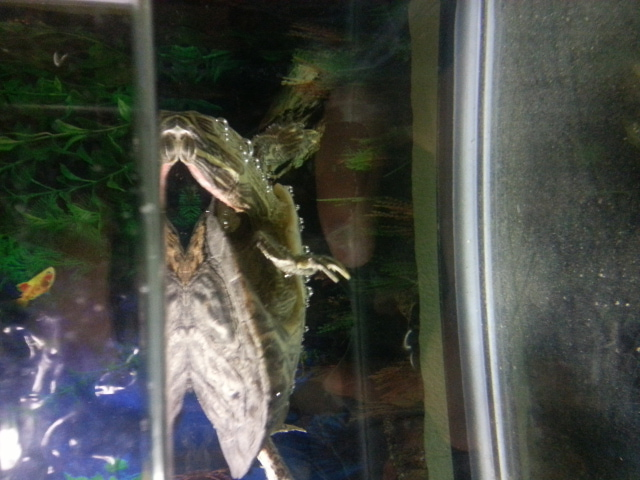 turtle sleeping
Question
turtle in water turtle in water
N
turtle sleeping
Question
turtle in water turtle in water
N
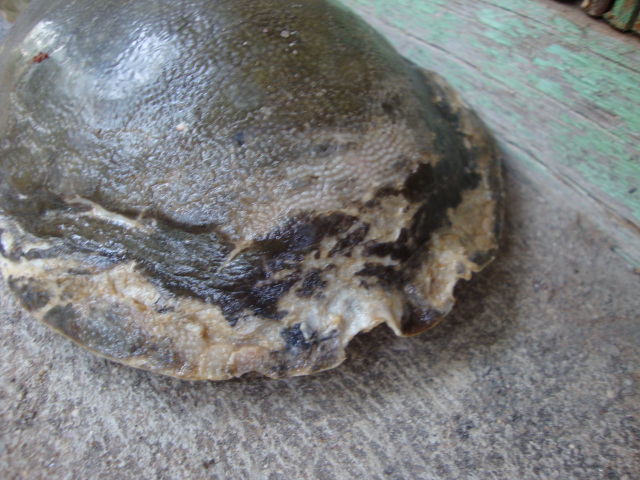 about the health of my tortoise
Question
tortoise shell
hi iam sasikiran.actualy
about the health of my tortoise
Question
tortoise shell
hi iam sasikiran.actualy
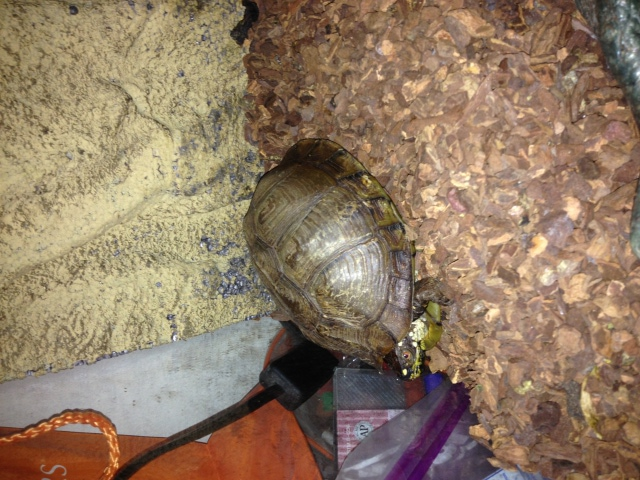 Turtle food
QuestionQUESTION: I have had my turtle for 5-7 years wh
Turtle food
QuestionQUESTION: I have had my turtle for 5-7 years wh
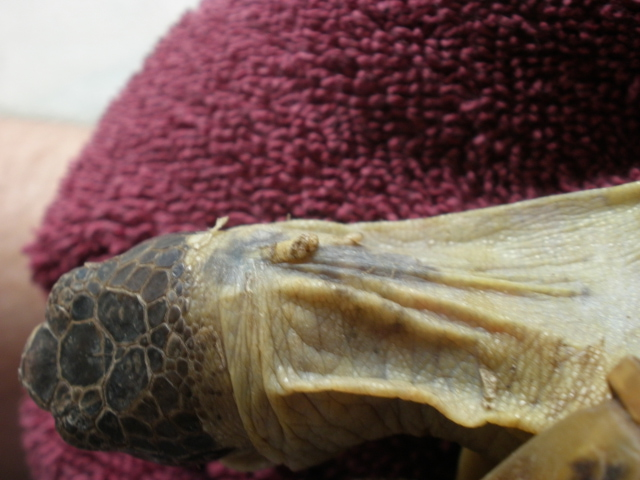 Russian Tortoise neck discoloration
Question
Neck 1 Neck 2
I have a Russian to
Russian Tortoise neck discoloration
Question
Neck 1 Neck 2
I have a Russian to
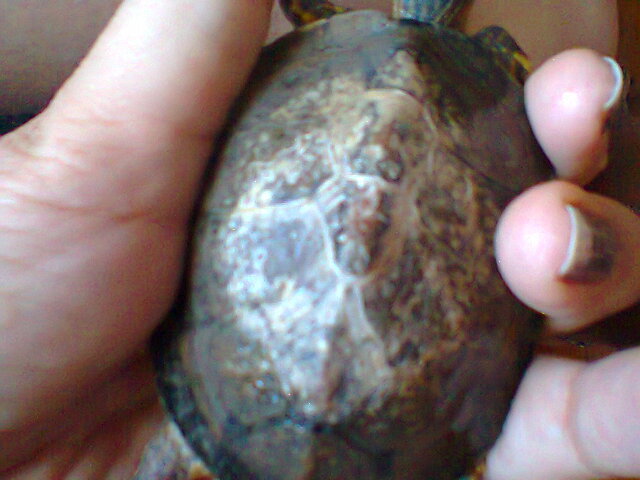 guide for my turtle-tuty
QuestionQUESTION: hi,
i have a Indian Roofed Turtle (Pa
guide for my turtle-tuty
QuestionQUESTION: hi,
i have a Indian Roofed Turtle (Pa